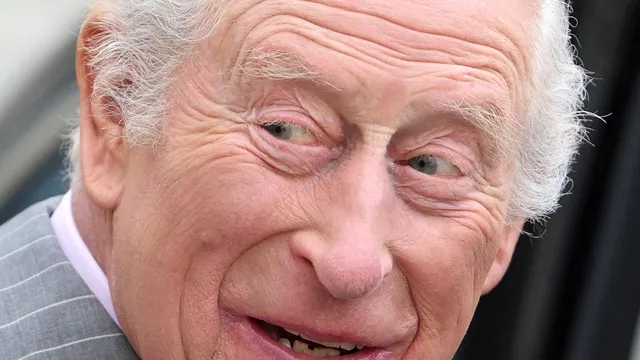
King Charles III faces health challenges while Kate Middleton prepares for the crown
2025-03-28 00:19- King Charles III was hospitalized for observation after experiencing side effects from his cancer treatment.
- Kate Middleton is navigating pressures to fulfill her future role as queen while managing personal health challenges.
- The dynamics of the royal family are shifting as they prepare for the monarchy's future leadership.
Express your sentiment!
Insights
In the United Kingdom, King Charles III was taken to the hospital on Thursday, March 27, 2025, for observation related to temporary side-effects from his ongoing cancer treatment. Following the treatment earlier that day, the king had to cancel his scheduled engagements, including a visit to Birmingham. Although he returned to Clarence House shortly after his hospital visit, it was a concerning moment for the royal family as they manage the king's health issues amid speculation about the future of the monarchy. The presence and support of family members were crucial during this challenging time. Kate Middleton, known as the Princess of Wales, is also facing increasing expectations as she prepares for her future role as queen. Royal experts have noted the mounting pressures on her as she balances her royal duties with personal challenges, including her own health issues last year which required treatment for an unspecified form of cancer. Figures within the royal circle have praised Kate for managing these challenges with grace while receiving support from Prince William and other women in the royal family, indicating a strong family unit navigating difficult times together. As the future queen, Kate's public perception appears to be shifting towards an emphasis on substance over style. It has been reported that her focus now includes making real contributions to the royal duties that extend beyond her fashion choices. This intentional change signifies a keen understanding of the modern monarchy's relationship with the public, shifting perspectives from traditional royal fashion to a more relatable and relevant image. Observers and palace insiders suggest that there's a new dynamic in how Kate approaches her public engagements. The ongoing health struggles of King Charles III present a serious context in which the future of the British monarchy is being discussed. All eyes are on Kate Middleton and Prince William as they are seen as the future leaders of the royal family. Despite the king's current health challenges, there is anticipation surrounding how Kate will fulfill her role and responsibilities, reflecting a new era in the monarchy that will be shaped by their leadership.
Contexts
The health of a monarch has significant implications on their royal duties, affecting not only their capacity to perform ceremonial functions but also influencing public perception and the stability of the monarchy itself. A monarch's health can dictate the degree of their engagement in state affairs, public appearances, and traditional events, which are often seen as vital for maintaining connections between the royal family and the populace. When a monarch is unwell or incapacitated, duties may be delegated to other members of the royal family or officials, potentially leading to changes in the perception of royal authority and effectiveness. This delegation could engender a temporary lack of continuity in leadership, leading to questions about the functioning and relevance of the monarchy itself during times of health crises. Moreover, the overall health of the monarch can substantially impact the ceremonial aspects of monarchy which often serve to bolster national identity and unity. Frequent or prolonged absences from public life due to health issues can lead to a diminishing of the royal presence in national matters, which may create a sense of disconnect between the monarchy and the citizens. In times of national celebration or crisis, the presence of the monarch is often seen as a source of stability and reassurance. Therefore, health challenges can put additional pressure on the royal family to maintain appearances and uphold public morale during difficult times. In addition to public engagements, the monarch's health can also bear ramifications on diplomatic relations and state visits. The absence of a monarch due to health can delay important dialogues and agreements, affecting international relations. When a monarch cannot travel or attend high-profile events, it may lead foreign counterparts to question the monarchy's stability or reliability, subsequently impacting the country's image abroad. Furthermore, it can prompt discussions within political circles about succession and the broader implications for the royal lineage, particularly in discussions regarding the future king or queen. Ultimately, a monarch's health encapsulates various dimensions of royal duties, weaving together ceremonial, diplomatic, and public responsibilities. With the rise of conscientious public scrutiny in the media age, transparency regarding a monarch's health status can become crucial not only in managing royal duties but also in sustaining public trust in the institution as a whole. As modern monarchies navigate the complexities of health and public life, understanding the implications of a monarch’s health on royal duties is essential for preserving the institution's integrity and relevance into the future.